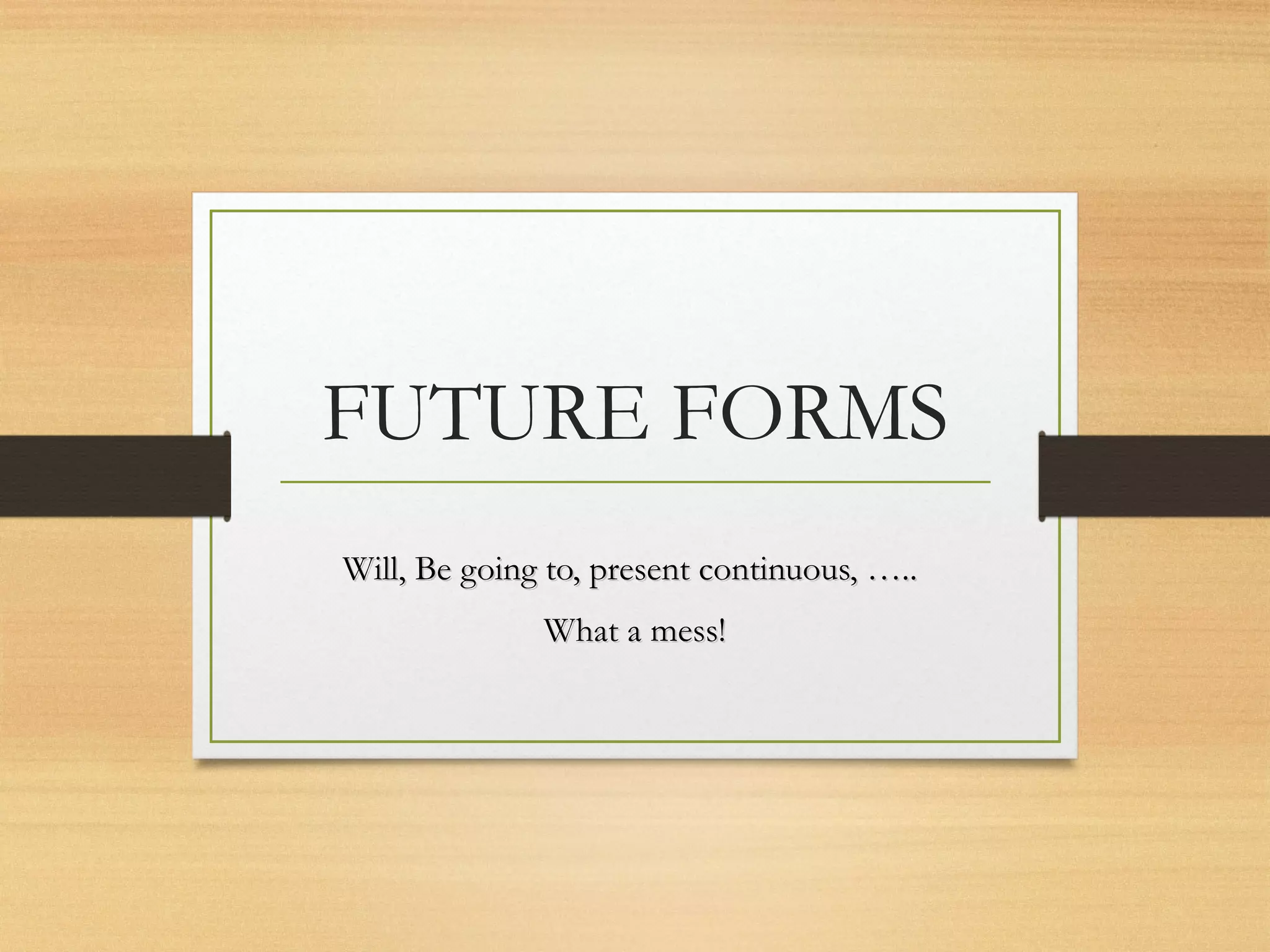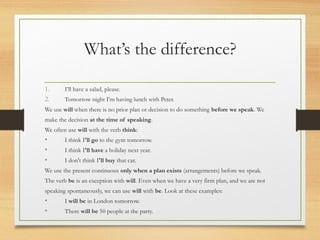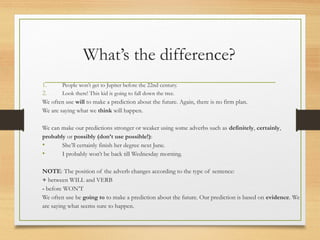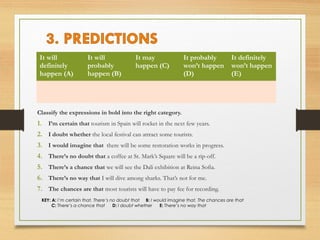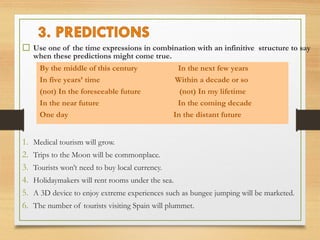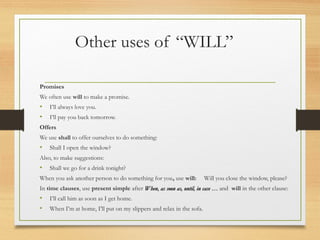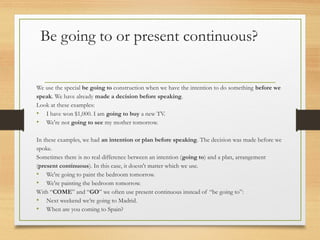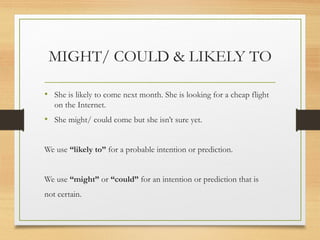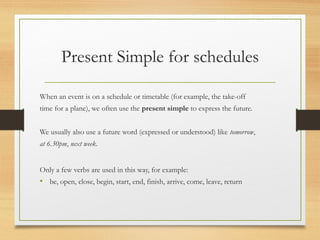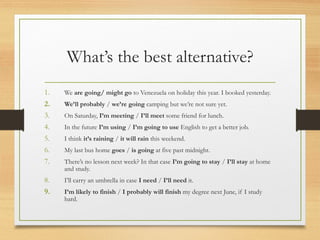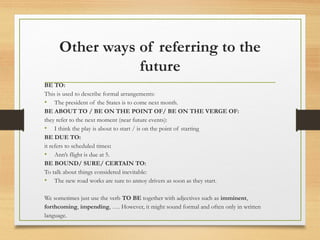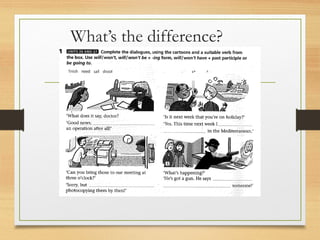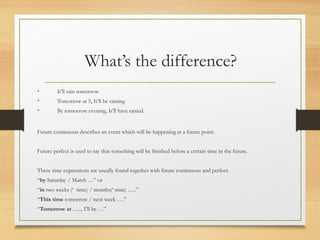The document discusses various uses of will and other structures to refer to the future in English, including:
1. The difference between will and the present continuous for plans and predictions. Will is used without prior plans, continuous is used for existing plans.
2. Uses of will for predictions based on evidence or opinion, promises, offers, suggestions. Time clauses also use will.
3. The difference between be going to for intentions and present continuous for plans/arrangements.
4. Other structures like might, could, likely to, present simple, be to, be about to for various future meanings.
5. The difference between future continuous for ongoing future actions and future perfect for completed
